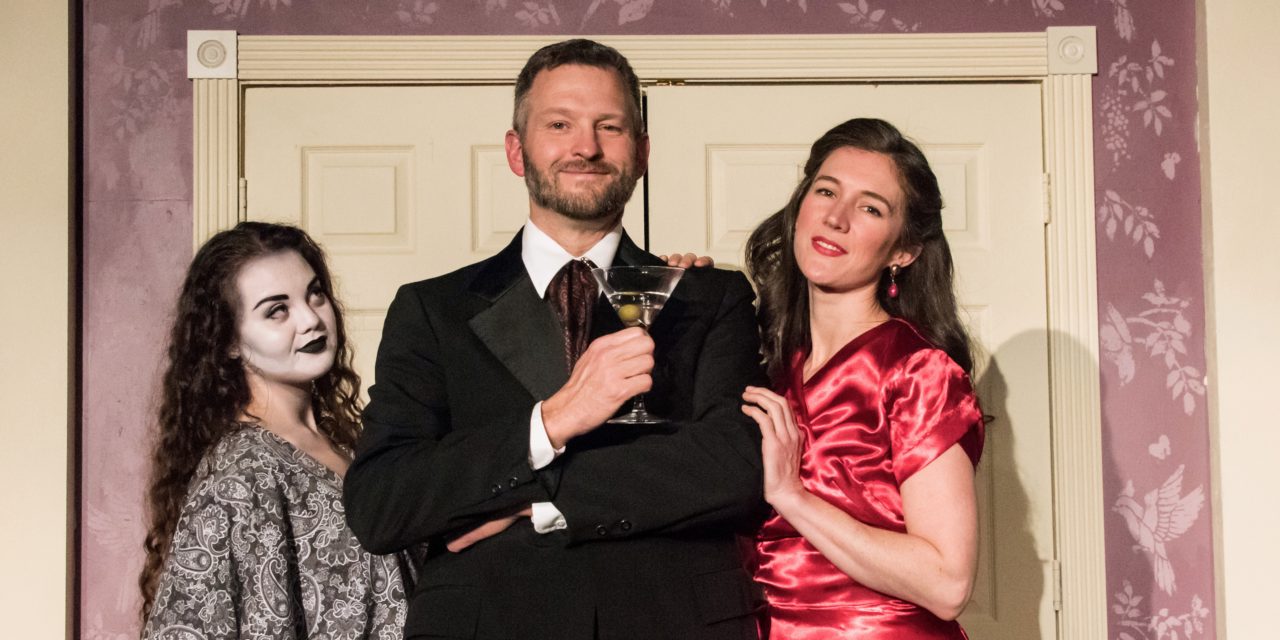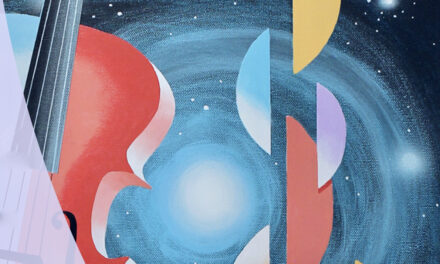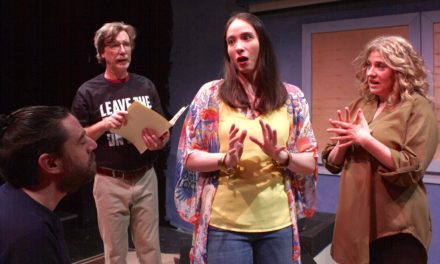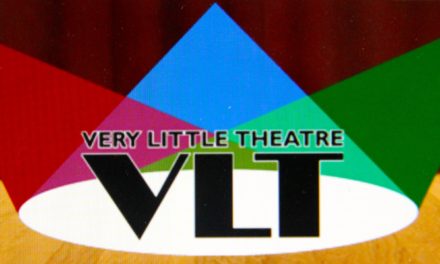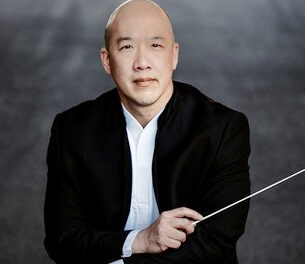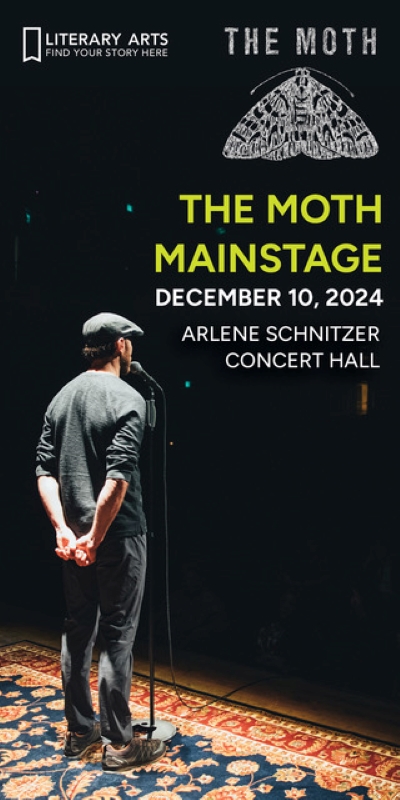By Kelly Oristano
Homer Simpson: So give me some free maps, and none of that Dry British Wit!
British Hotel Clerk: [dryly] I wouldn’t dream of it, sir.
Noel Coward’s Blithe Spirit, now onstage for VLT’s 90th season, is an old play about old ideas and old attitudes. Even at the time of its 1945 premiere, the laughs were as dry as the martinis and now, having aged for three quarters of a century, they’re positively arid. The thing that still rings true today is the embedded notion that Marriage should last from the Altar to the Grave, and no further.
Charles and Ruth Condomine are married; by Noel Coward standards one might say they’re happily so. They’ve each been married once before, though, so there’s no wide-eyed naivete to this arrangement. They have a clear-headed “understanding” of what their lives are until Charles gets it in his head to host a seance. He’s a novelist, you see, and needs material for his next opus. A local spiritualist/grifter who calls herself Madame Arcati has been making a splash around County Kent with her trances, ectoplasms, emanations, and shades, and she is expected at the Condomines’ this evening.
It all proceeds politely enough. The Condomines’ neighbors, Mrs. and Dr. Bradman, join them for dinner and divination. Madame Arcati arrives with much self-provided fanfare and self-aggrandizing biography. All four of her table-sitters are quite skeptical, of course — none more so than Charles. Still, when Madame selects her mood music, something takes a turn. Charles is unsettled.
And not to spoil a 75-year-old play, but lights flicker, trances are comically entered, tables rattle and shake, and at the close of Act One there’s an honest-to-goodness ghost on the stage. And not just a passing pedestrian poltergeist, either. Charles has subconsciously summoned to the scene his first wife Elvira, who died in this very flat, seven years ago.
In Act Two, things spin out from there. The Madame is simply thrilled to have such a verifiable phantasm, as she’s in the midst of proving her powers to some sort of psychical research agency. Elvira is delighted to be able to unburden herself of a number of things that death and time stole her chance to say, and Charles and Ruth are, despite their impossibly stiff upper lips, put under a certain amount of strain as inter-dimensional revelations start to swirl around the room. I don’t think anyone would describe the ending as ‘happy’ but it is funny (droll), and satisfying.
For all that doesn’t work about it and is old and needless, there are things that definitively do work. It’s easy to pine for a world where Tuxedos and Gowns are required for dinner, and everyone’s every witticism pierces the air on a wind of Vermouth. The dramatic irony of watching a character move a vase across a room but knowing that another character sees that vase flying across the room is wickedly funny even at 75. And Coward was no slouch with a pen; extraordinary lines dot the script at regular intervals. I am unaware of a line in 21st-century theater that competes with, “I’ve always believed in cutting my losses, that’s why I died.
There’s even, at the center of the thing, something that almost approaches being a Serious Universal Theme, though it’s so glancing you’d be forgiven for missing it. In the middle of the play, after Ruth and Charles have browbeat each other over their shared past and the past they shared with others before that (old ideas), Charles notes that he turned to the spiritualist after a return to faith, a dive into glandular science (very in vogue in the ’40s), and an encounter with psychotherapy, all of which had failed to fix whatever has been eating at him. He doesn’t come right out and say it, but all the known cures for alienation are themselves alienating. This is a smart, heavy, and kind of sad thing to drop in the middle of a light, dry, airy play, and it deserves consideration.
And it’s to the play’s credit that it centers and focuses on women in a way that was revolutionary at the time and which demands various high competencies from the women who dominate the ensemble. But if that’s to the play’s credit, then the couple of would-be light-hearted jokes about how Charles once or twice upon a time probably beat both Elvira and Ruth (old attitudes), possibly with implements, are a deep cut against that credit.
VLT’s cast is good. Janna Slack is outstanding as Ruth, capturing the look and importantly the sound of the era superbly. Kali Kardas and Aimee Hamilton are talented comic actors, both well-used here. Lisa Roth is uncommonly believable as the neighbor, Mrs. Bradman, and Kathy Lamontagne brings a unique, almost anachronistic energy to Madame Arcati, hitting all the needed comic notes without ever clowning.
Daniel Squire is a knowing and debonair Charles. The script asks a lot of Charles and Squire gamely obliges. He’s by turns above-it-all, then emotionally underwater, constantly pitting his intellect against his reactionary side. Bill Siedler is charming and pulls a few good laughs as Doctor Bradman.
Richard Scheeland’s set is warm, authentic, and when it needs to be, effortlessly functional. The costumes by Gail Rapp and Paula Tendick are fantastic.
Blithe Spirit will be unnaturally returning from the other side for two more weekends at VLT.
Blithe Spirit
When: Evening shows at 7:30 p.m. on Jan. 31, and Feb. 1-2 and 7-9; with 2 p.m. Sunday matinées on Jan. 27 and Feb. 3
Where: The Very Little Theatre, 2350 Hilyard St., Eugene
Tickets: $21 adults, $17 for senior citizens and students and all Thursday performances; available at the box office, 541-344-7751, or online at The VLT.com

